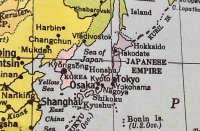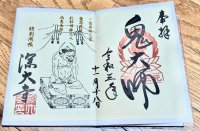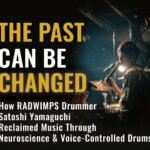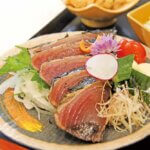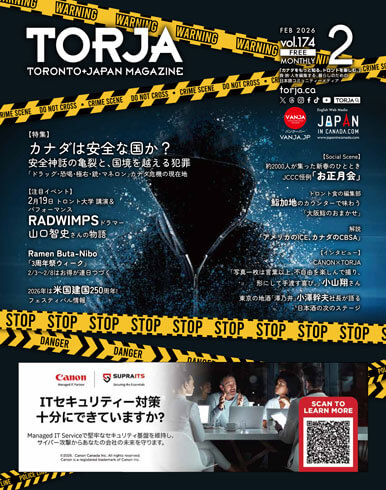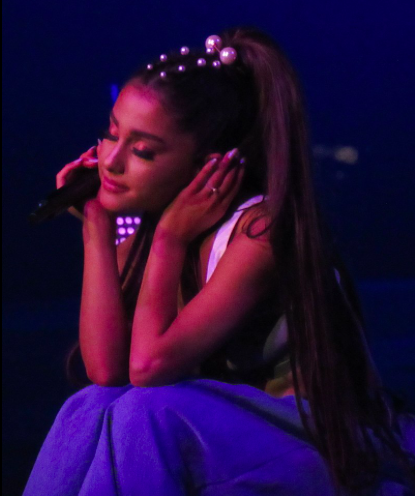
Although cultural appropriation has become an often-discussed topic in western media today, it is a term Japanese people are not too familiar with at all. Cultural appropriation, the adoption of elements of one culture by members of another culture (whites), often become controversial when members of a dominant culture appropriate from disadvantaged minority cultures. There is a distinct difference between respectful and equal cultural exchange and appropriation, which is the presence of power imbalances that are a byproduct of colonialism and oppression.
Japanese culture has a long record of being appropriated and whitewashed by dominant cultures: one of the most memorable would casting a white guy as Mr. Yunioshi in Breakfast at Tiffany’s. Such a move by Hollywood (dominant whites) is rooted in racist, anti-Asian stereotypes towards Japanese people, with indicators of stigmas towards the Japanese in post-WWII United States. Sofia Coppola’s Lost In Translation, an award-winning semiautobiographical film starring Bill Murray and Scarlett Johansson, depicts a pair of Americans finding connection with one another in the mysterious land of Japan, was called “an insufferable, racist mess” by MTV News. It was called for a boycott by Asian-American group, arguing that it “dehumanizes the Japanese people by portraying them as a collection of shallow stereotypes who are treated with disregard and disdain.”
2004 Oscar winner for best Screenplay, Lost In Translation was accused of perpetuating negative stereotype of Japanese people, causing a call out for boycott by Asian-American group.
Last year, Wes Anderson’s latest film, “Isle of Dogs” was accused of appropriating Japanese culture for it being solely “white Man’s Fantasy of Japan”, according to Vice. Katy Perry’s performance at the American Music Award, wearing Kimono provoked a Twitter controversy by western bystanders, who accused her of perpetuating a stereotype of Japanese women as geisha-esque and submissive. It is obvious that there are obviously toxic cases where negative stereotypes of Japanese people are perpetuated—but how do we draw the line between the appropriation of a culture and the appreciation of it? What incites my curiosity even further is how to we categorize appropriation in the case when Japanese people say that there is nothing offensive about an “appropriation”, that they are not victimized, but are, instead happy?
Grande’ Charcoal grill causes social media meltdown—and upset fans in Japan
Ariana Grande – “7 rings”
This January, the 7 Rings pop singer Ariana Grande, went on a Twitter rant after being accused of cultural appropriation. It is not the first time that Grande, who has topped international charts and broken world record, has been called out for appropriating cultures. She has started using Japanese-inspired imageries in her music videos and Japanese lettering in her work; sweatshirt which reads “ありがとう”(arigatou) means “thank you” in Japanese (an obvious reference to her single, thank u, next.) Her recent tattoo went viral on the internet.
Ariana Grande’s new tattoo “七輪” means Japanese style bbq grill, not 7 rings. 😭 If you want to know about 七輪, just google “SHICHIRIN” pic.twitter.com/HuQM2EwI62
— *amo* (@hey__amo) 2019年1月30日
The tattoo, which is supposed to read “7 Rings”, instead, because of a mistake, means, instead a portable traditional Japanese charcoal grill used for barbequing (七輪). It has caused a meltdown on social media, both in the west and in Japan. TMZ tweeted about a US$1 million offer to remove her tattoo, and she has responded on Twitter, “I’ll give y’all a million to get off my nuts”. Her tweet followed, “I also went back and got it fixed with the help of my tutor to be more accurate. I can’t read or write kanji obviously. what do you want me to do? it was done out of love and appreciation. what do you want me to say? Forreal.” She also continued, “There is a difference between appropriation and appreciation. My Japanese fans were always excited when i wrote in Japanese or wore Japanese sayings on my clothing. However, all of the merch with Japanese on it was taken down from my site not that anyone cared to notice,” In another response, she tweeted “I have crippling anxiety lol. I don’t like hurtin ppl…People on this app really don’t know how to be forgiving or gentle when someone has made an innocent mistake. No one considers feelings other than their own. It’s very pointless. Ion [I don’t] even know why I’m talking ab[out] this anymore.”
Two of the tweets that stood out for her fans in Japan, were the ones where the singer said she would stop taking Japanese lessons. She tweeted, “imma stop taking lessons too. it’s literally just something that brings me joy and that i’m passionate about. i legit wanted to move there one day. but all good.” Grande also mentioned that every piece of merchandise with Japanese written on it had been pulled from her online store, which shocked the Japanese fans as the backlash have had such a negative effect on Grande’s affection towards Japan. Especially given that the pop singer had been vocal about her passion for Japanese language, and were taking Japanese tutoring lessons since 2014.
わたしはべんきょします! pic.twitter.com/2FluSWXWun
— Ariana Grande (@ArianaGrande) 2015年2月15日
The question is—whereas an accusation of cultural appropriation is necessary, has the backlash of cultural apparition gone so far that it is having a negative effect on people who want to appreciate other cultures? Do we need to be more kind towards one who are learning and makes innocent mistakes, for societies to take a step forward, for diverse cultures to be celebrated?
As mentioned in the beginning of this, there are obviously offensive acts of cultural appropriation. However, what even is appropriation in this case? Do Japanese people even get Kanjis tattooed on their hands? Is that a thing Japanese people do? I can tell you, no. Very seldom do Japanese people even have tattoos. It is custom foreigners do, when visiting Asian countries because they think it looks “tight” (as Grande puts it), and maybe it does if you can’t read Japanese, but that’s beside the point.
Not cultural appropriation, but orientalism
My point is, Ariana Grande, strictly speaking, is not appropriating a culture. She is but doing what westerners like to do, when they like an Asian culture. She is appreciating a culture in a way she, as an American, knows how to and that is not cultural appropriation—it is orientalism, a much more complex issue. However, to solve the problem at hand, may it be orientalism or cultural appropriation, one should not call someone out for act of simply trying to learn and appreciate another culture. One can say that Grande is not appreciating it in the appropriate way, but if bystanders on Twitter continue to bash those who are actually trying to learn about other cultures, how is that making the issue any better? How will we, one day, be able to see a world where there is no appropriation and no orientalism, if we cut people off from the starting point?
Ariana Grande, if you are reading this, it is okay to have a charcoal grill written on your hand. It’s a careless mistake. I am sure, if you continue to practice your kanji, you will, one day, be able to understand the culture, can learn and practice it in a respectable and appropriate way and, being the superstar that you are, will be able to influence others to continue to do the same.


